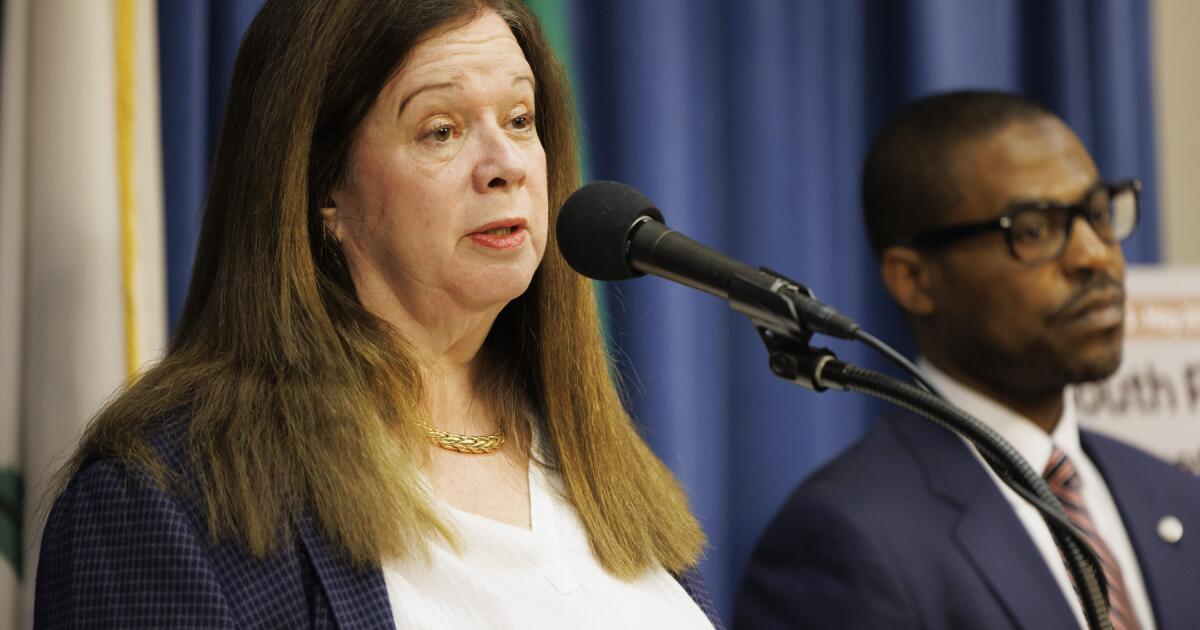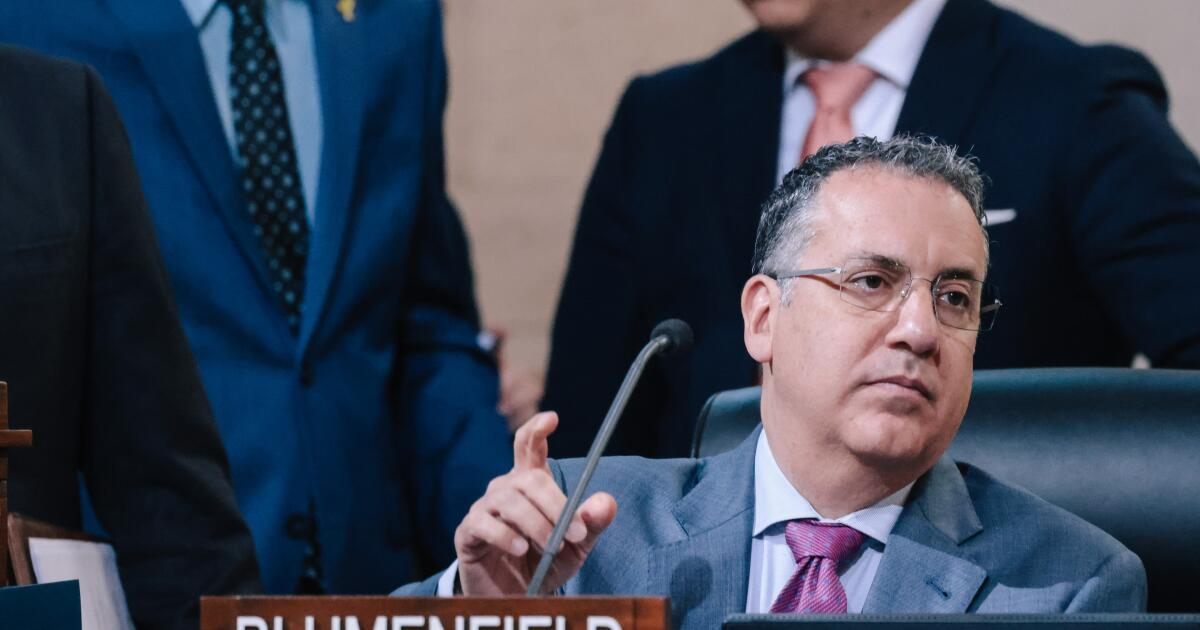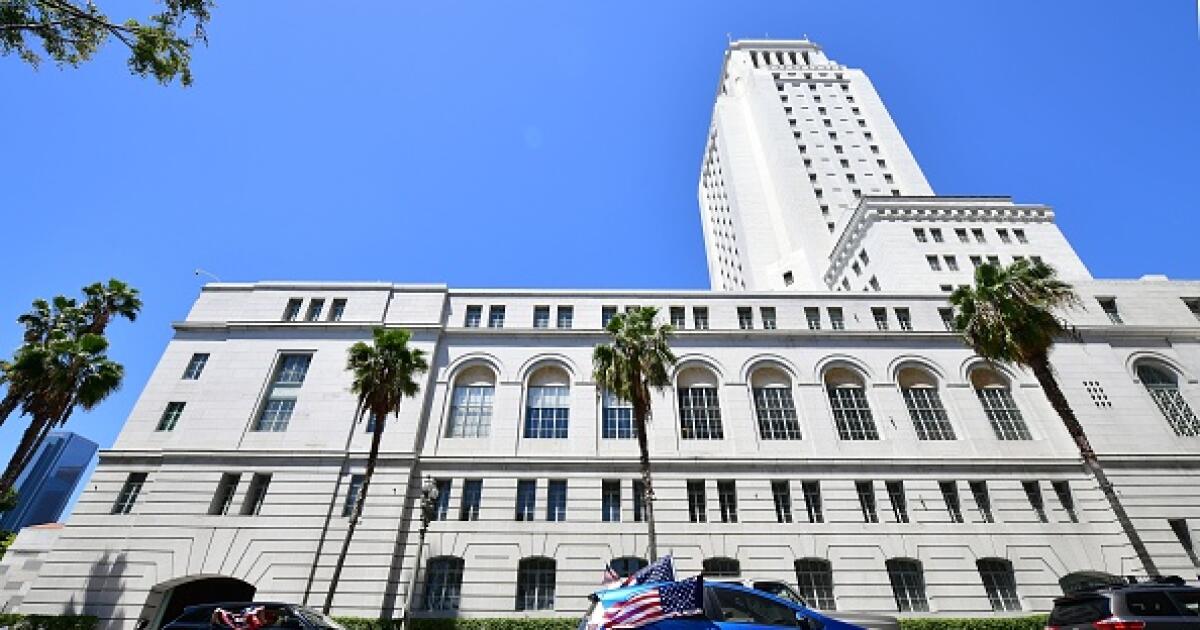Lawyer who sent L.A. whopping bill to get $4 million more
The Los Angeles City Council on Wednesday approved a fivefold increase to its contract with a law firm that drew heated criticism for the invoices it submitted in a high-stakes homelessness case.
Three months ago, Gibson, Dunn & Crutcher billed the city $1.8 million for two weeks of legal work, with 15 of its attorneys billing nearly $1,300 per hour. By Aug. 8, the cost of the firm’s work had jumped to $3.2 million.
The price tag infuriated some on the council, who pointed out that they had approved a three-year contract capped at $900,000 — and specifically had asked for regular updates on the case.
Despite those concerns, the council voted 10-3 Wednesday to increase the firm’s contract to nearly $5 million for the current fiscal year, which ends in June 2026. Councilmember Katy Yaroslavsky supported the move, saying Gibson Dunn’s work has been “essential to protecting the city’s interests.”
“At the same time, we put new oversight in place to ensure any additional funding requests come back to council before more money is allocated,” said Yaroslavsky, who heads the council’s budget committee.
Councilmembers Tim McOsker, Adrin Nazarian and Nithya Raman voted against the contract increase.
McOsker, who also sits on the budget committee, said he was not satisfied with Gibson Dunn’s effort to scale back the amount it is charging the city. After the council asked for the cost to be reduced, the firm shaved $210,000 off of the bill, he said.
“I think Gibson should have given up more, and should have been pressed to give up more,” McOsker said after the vote.
A Gibson Dunn attorney who heads up the team that represents the city did not immediately respond to a request for comment. Meanwhile, an aide to City Atty. Hydee Feldstein Soto welcomed the council’s vote.
“We are pleased that the City Council recognizes and appreciates the strong legal representation that Gibson, Dunn & Crutcher has provided and continues to provide to the city,” said Karen Richardson, a spokesperson for Feldstein Soto, in a statement.
Gibson Dunn was retained by the city in mid-May, one week before a major hearing in the case filed by the L.A. Alliance for Human Rights, a nonprofit group that has been at odds with the city over its handling of the homelessness crisis since 2020.
The city reached a settlement with the L.A. Alliance in 2022, agreeing to create 12,915 homeless shelter beds or other housing opportunities. Since then, the L.A. Alliance has repeatedly accused the city of failing to comply with the terms of the settlement agreement.
In May, a federal judge overseeing the settlement called a seven-day hearing to determine whether he should take authority over the city’s homelessness programs from Mayor Karen Bass and the City Council, and hand them over to a third party. Alliance lawyers said during those proceedings that they wanted to call Bass and two council members to testify.
In the run-up to that hearing, the city hired Gibson Dunn, a powerhouse law firm that secured a landmark Supreme Court ruling that upheld laws prohibiting homeless people from camping in public spaces.
Feldstein Soto has praised Gibson Dunn’s work in the L.A. Alliance case, saying the firm helped the city retain control over its homelessness programs, while also keeping Bass and the two council members off the stand. She commended the firm for getting up to speed on the settlement, mastering a complex set of policy matters within a week.
Feldstein Soto initially hoped to increase the size of the Gibson Dunn contract to nearly $6 million through 2027 — only to be rebuffed by council members unhappy with the billing situation. On Wednesday, at the recommendation of the council’s budget committee, the council signed off on nearly $5 million over one year.
A portion of that money will likely go toward the filing of an appeal of a federal judge’s order in the LA Alliance case, Feldstein Soto said in a memo.
Faced with lingering criticism from council members, Feldstein Soto agreed to help with the cost of the Gibson Dunn contract, committing $1 million from her office’s budget. The council also tapped $4 million from the city’s “unappropriated balance,” an account for funds that have not yet been allocated.
By transferring the money to the Gibson Dunn contract, the council depleted much of the funding that would have gone to outside law firms over the current budget year, said McOsker, who called the move “bad fiscal management.”
Raman, who heads the council’s homelessness committee, said her dissenting vote wasn’t about the price of the services charged by Gibson Dunn, but rather the fact that so much was spent without council approval.
“As someone who is watching that money very closely, I was frustrated,” she said. “So my ‘no’ vote was based on that frustration.”




